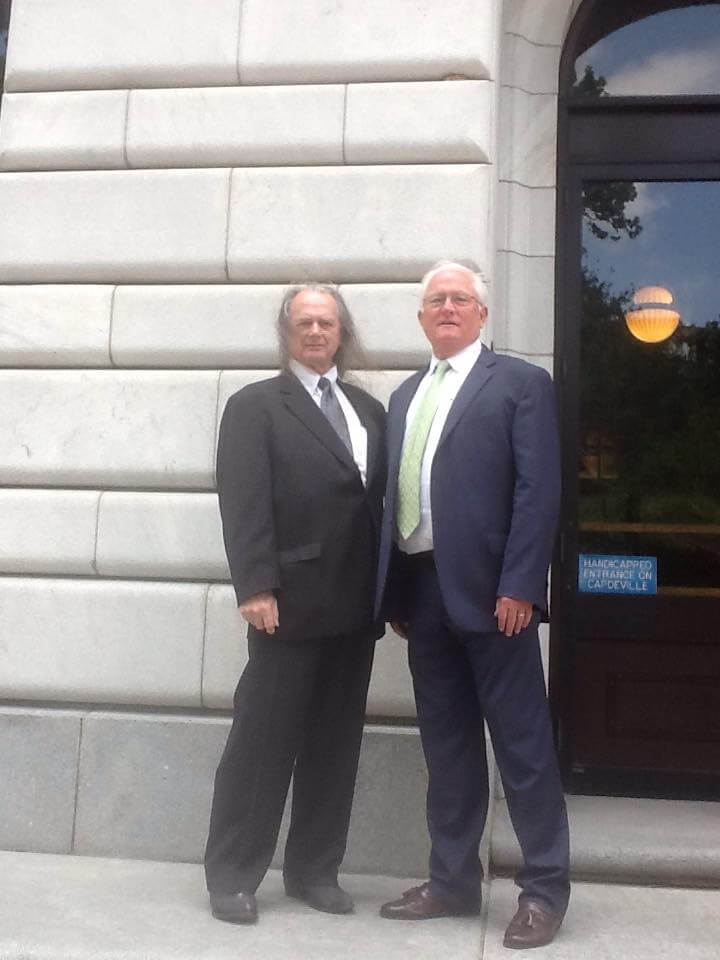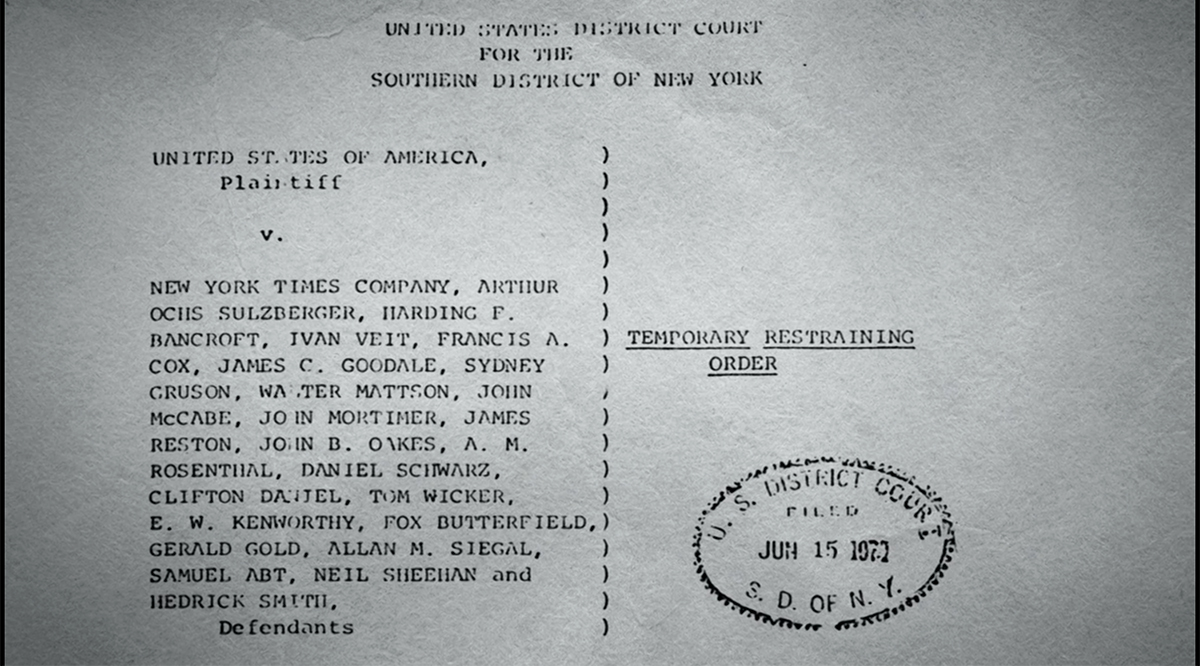In the summer of 2022, I was a newspaper reporter covering the proposed sale of a county hospital on the Mississippi Gulf Coast. The hospital was called the Singing River Health System and today the sale has still not happened.
A few years prior, that hospital had fleeced its retired employees by secretly ceasing payments into their pension fund.
On the suggestion of a colleague, I drove to the wood-paneled Pascagoula law office of an attorney named Harvey Barton, who had represented a group of Singing River retirees in an ultimately unsuccessful lawsuit over the pension fund’s collapse.
“I’m a storyteller and I’m a historian,” Barton told me, “and so I can paint you a story. I mean, I really can. All based on facts.”
I recorded our conversation. What follows is his account of how he saw through a trusted friend’s duplicity and foiled the hospital board’s plans to terminate the pension plan before the lawsuit could even begin—a small-town legal thriller in miniature—lightly edited for clarity.
So this is about eight years ago. Let me get that date correct. Maybe nine. 2013. I go to South Dakota pheasant hunting every October, so it was in October and I think it was—I’ll have to get that date.
[Barton presses a button on his speakerphone.]
Hey. What was the—no, hey, can I call you back? I pressed the wrong button … Oh. What was the day that Cindy gave us when the first temporary injunction happened? December the fifth of what year?
[“2014,” a woman’s voice answers.]
Thank you. So, almost eight years ago. I’m coming back from South Dakota and my phone starts ringing: “Hey. They’re trying to terminate the retirement plan.” “Hey, they’re doing this.” “Hey, we heard they’re doing this.” And these are friends and potential clients of mine.
“Did you already represent them?” I ask.
I had, in various things, yeah. I mean, they’re just friends; they knew me as a lawyer, et cetera—nothing to do with the retirement plan, nothing to do with the hospital. And I’m going, “Whoa, whoa, whoa, whoa, whoa, guys, listen, I’m traveling. I don’t have time to deal with it right now. Let me get back, get my feet on the ground.” Meanwhile my phone’s ringing off the hook. I can remember that an employee of the hospital secured a copy of the retirement plan surreptitiously, however he did it, and I met him in the dark one night outside the gate in my subdivision, and he said, “Here, you need to read this.” I went, [in a stage whisper] “Okay, I will.” There was a lot of conspiracy and a lot of rumors and conjecture.
I went with a friend of mine and his wife and my wife to Tallahassee, Florida, that weekend for a Florida State football game. David was driving and I was in the passenger seat. So I had some time, I was traveling, and I had that plan, and I just kind of started looking through it. Reading, reading, reading, reading, reading, reading. And all of a sudden, after a couple of hours, I went, “Holy crap!” I said, “I know what they’re trying to do.” And that’s when I found that clause that said they could terminate the plan.
So we get back. I was involved in another estate litigation with a guy on the other side named Earl Denham.
I know that name, but I don’t remember who—oh, he’s the lawyer who passed away.
[There are conflicting accounts circulating on the Coast of Denham’s death in 2018 but it occurred the day after he was punched in the face in a dispute over a woman.]
Yes, very good. Earl Denham married a girl from India, as a matter of fact. Had several children with her. Earl was probably one of the more feared lawyers along the coast. Very smart. Earl and I became friends a number of years ago, twenty-five years ago or more, because we would litigate against each other on a case, and he wouldn’t back off and I wouldn’t back off. I mean, it was like just, till death do us part. But he always dealt ethically and it was a fair fight, win or lose. Neither one of us were intimidated by the other, by the judge, by anything. And we became friends, which was like Mutt and Jeff, or whatever you want to call it. We were complete opposites. This was the relationship. I described it this way: I said I’m the son of righteousness, I’m a Christian, I go to church, I’m in the Gideons. He’s the spawn of Satan.
How did he take to this characterization?
He’s fine with it, he revels in it. But we became very good friends. We had never done anything together, but we were, in this case, together. We were on the same side in this trial. We were talking and he said, “Man, I’m worried about this retirement plan.” I said, “Yeah, I am too.” He said, “You know, I’m so worried, last night I got up and I dictated a lawsuit.” He said, “I don't have any clients, but I dictated a lawsuit.” And I said, “Well, guess what? I’ve got clients, but I don’t have a lawsuit.” And he said, “Do you want to get together?” And I didn’t even hesitate. I said yes.
So that was on a Thursday and we went to his office that afternoon and we cleaned up the lawsuit without knowing a whole lot what we were doing. But we were just going to launch something and try and stop the hospital from canceling the retirement plan, based on the rumors and conjectures.
So at this point—sorry to interrupt—at this point, you don’t yet know that they stopped paying into it?
No, not really.
All you know is that is that for some reason—
They’re trying to cancel the plan. We didn’t know a lot of details. We just didn’t.
Okay.
So we walked into the courthouse on Friday morning, and we came in together with our lawsuit to get ready to file. And the clerk looked up—and I'll never forget this—looked at both of us. “Can I help you?” Like we’re separate, you know. And Earl said, “We’re together.” And she went, “That’s scary.” And I said, “That’s exactly what I want people to think when they see Earl and I coming, that it’s scary.”
So we filed the lawsuit to get what’s called a temporary restraining order to stop them from doing whatever it is they’re doing, which we didn’t really fully know.
The hospital attorney was a guy named Roy Williams. Very rich, very powerful, very popular, very well-known. Roy Williams and I were such—I’m not gonna say—we weren’t bosom buddies, but we were friends. His son had been in the same neighborhood with me for a while. His grandson, Parker, and my son Gentry were like best buds. My son Gentry is actually named after one of his sons named Gentry. We had met Gentry back when he was in high school and he was in Key Club and we got very close to him and we said if we ever had a son, we were going to name him Gentry, and we did. And Gentry was very close to him. He called Roy “Pops.” I mean, our families were pretty close.
And so I went to Roy’s office to serve him with process that says, “Hey, you’re the attorney for the hospital. I want to be in court. I want to know what’s going on.”
And his secretary, Marion, said he’s gone. He’s out. “Well, I need to see him. Where is he?” “Well, he went to the bank and, um, okay, let me just, you know—stay here.” About that time, the phone rings and Roy—“Well hey, Mr. Williams—Oh, okay. He’s on his way to his condo in Gulf Shores.” It was so elaborate that, at some point, the call dropped, as if he’s apparently going through the Bankhead Tunnel under the Mobile River. And then he called back and no, no, he’s not going to be here for process, and no, he can‘t be in court until next Thursday. Okay. All right. So I said, we got to get him served. We had what’s called a temporary injunction to get the judge to sign it. But once she signs that injunction, you’ve got to have a hearing within like five days or the injunction is no longer good. So now we got it. But we got to serve people. We got to serve the hospital trustees and Roy Williams and everything.
It’s not as simple as just sending a letter to their office?
You got to personally serve a process. A temporary restraining order is a unique thing because you’re doing something without giving the other side notice. But because of that, you’ve got to give them notice very quickly, an opportunity to be heard.
So I knew I had to get Roy served. So I hired a process server to go to Gulf Shores, because I knew where his condo was, because my son had been to his condo. And I said, “Go down there and serve him.” And the processor would call. It’d be like 10:00 on Friday night. And he said, “Look, he’s not down here. Even if he stopped for dinner, he should be here by now.” And so I give it a little bit more. He said, “Well, I’ve talked to the guard. He said there’s not that many cars in the parking lot. He’s not here. It’s 10:30 at night.” And I went, “I’ll call you back,” and I jumped in my car and I went to Roy’s house, and I looked and I could see a big screen TV on upstairs. So I called him. I said, “He’s home.” And so I had him served at 7:30 Saturday morning in his pajamas.
I get a call later that day. He said, “Hey, man, it’s Roy.” “Well hey, Roy.” He said, “Look, I can’t be in court on Monday, uh, I can reset it to like Thursday.” I said, “Nope, we’re going to be in court on Monday.” He said, “But man, I can’t.” I said, “I don’t care whether you’re there or not. I’ve got you served. I’m going to be there.” He said, “Well, man, I can’t do it.” I said, “Roy, you lied to me.” “What do you mean I lied to you?” “I said you lied to me.” He said, “What’d I lie to you about?” I said, “You lied to me because you told me you’re going to be at your condo in Gulf Shores.” He said, “Well, where was I?” I said, “Oh, I was supposed to think you were in Gulf Shores, but you were on your boat behind your house.” He went, “Oh.”
So he lied to me. And I haven’t had a civil word with him since.
So we went to court on Monday in Lucedale, in George County, because the judge, Jaye Bradley, said she’d hear the case up there. Courtroom was packed. The press was there. The news was there. And as Roy was making his presentation, he said, probably inadvertently, “Well, Judge, we’ve already voted to terminate the plan.” And everybody went, “Ahh!” Like a collective gasp. Because we didn’t know that!
[...]
A corporation like this only speaks through its minutes. If you’ve voted, that vote doesn't become official until you sign the minutes at the next meeting. And so the next trustees’ meeting was that Wednesday, which is where they would have signed the minutes to terminate the plan. And that’s why Roy was lying to me, because he wanted to get past Wednesday and they would have terminated the plan. But we stopped them with a temporary restraining order and they were never able to terminate the plan.




